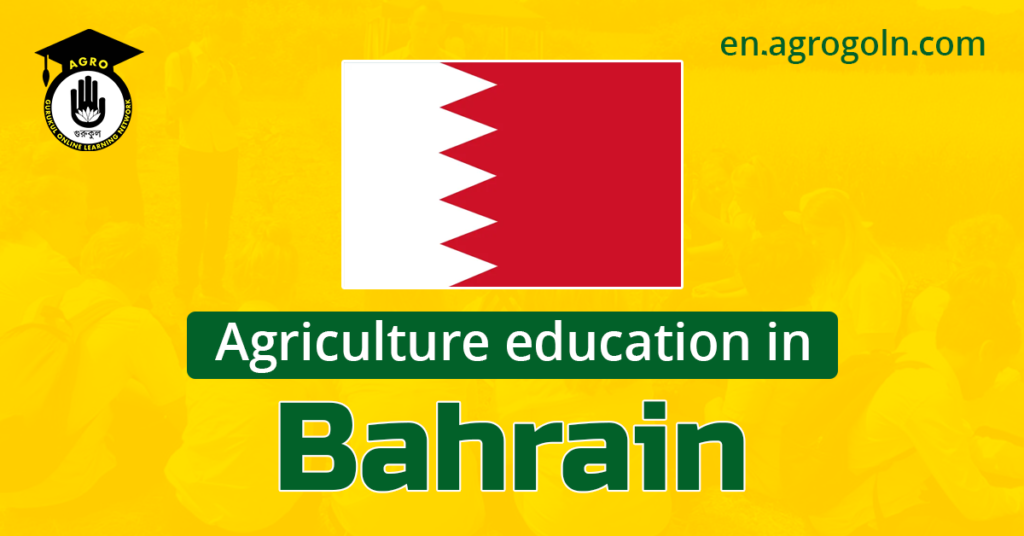Agricultural Education in Bahrain: Cultivating the Future. Agricultural Education in The Bahamas. Bahrain, a small island country in the Persian Gulf, has faced several challenges related to agriculture due to its arid climate, limited freshwater resources, and rapid urbanization. However, recognizing the critical role agriculture plays in food security and sustainability, Bahrain has been keen on improving its agricultural sector. Central to these efforts is agricultural education, aimed at equipping Bahraini youth with knowledge and skills to drive the country’s agricultural transformation.
Agricultural Education in Bahrain
Historical Context of Agricultural Education
Agricultural education in Bahrain has evolved over the years, shaped by the country’s changing economic and environmental circumstances. Historically, the focus was on traditional farming techniques, owing to the country’s heritage as a trading hub with a rich history of pearl diving, fishing, and farming. However, as Bahrain experienced rapid modernization and growth, the emphasis shifted towards more modern, sustainable, and technology-driven agricultural practices.
Institutions such as the College of Agricultural Studies, part of the University of Bahrain, were established to cater to this need. Providing Bachelor and Masters programs in Agricultural Science, these institutions have played a crucial role in shaping the country’s agricultural sector.
The Role of Formal Education
Bahrain’s formal education system has played a significant role in promoting agricultural education. The Ministry of Education, recognizing the importance of creating a scientifically literate society, has incorporated agricultural studies into the national curriculum. From primary school to high school, students are introduced to basic agricultural concepts, instilling an understanding and appreciation of the sector from an early age.
At the university level, the University of Bahrain offers degrees in agricultural science, providing students with a broad understanding of agricultural practices and a special focus on arid environments. Here, students are trained in modern farming techniques, soil management, water resource management, and the use of technology in agriculture. This comprehensive educational approach is designed to prepare students for a range of agricultural careers and promote innovation in the sector.
Technical and Vocational Education
In addition to formal education, Bahrain also recognizes the importance of technical and vocational training in agriculture. Various institutions, like the Bahrain Training Institute, provide vocational courses in agriculture. These courses are hands-on, focusing on technical skills needed in farming and agricultural management. They cater to individuals who may not wish to pursue academic degrees but still want to work in the agricultural sector.
Innovation and Technology in Agricultural Education
In the face of Bahrain’s challenging climate and resource constraints, the country has been forward-thinking in its approach to agricultural education, with a significant focus on innovation and technology. Universities and research institutions in Bahrain are pioneering research in areas like hydroponics, aquaponics, and vertical farming – technologies that can revolutionize agriculture in arid environments.
For example, the National Initiative for Agricultural Development (NIAD), under the patronage of Her Royal Highness Princess Sabeeka Bint Ibrahim Al Khalifa, Wife of His Majesty the King and NIAD President, has been a driving force behind modernizing Bahrain’s agriculture through technology. It encourages research and projects that aim to make Bahrain’s agriculture more sustainable and less dependent on freshwater resources.
Community Engagement and Informal Education
Agricultural education in Bahrain also extends beyond the walls of schools and universities. Various initiatives aim to educate the public about the importance of agriculture and sustainable practices. One such program is the annual Bahrain International Garden Show (BIGS). BIGS is not just a showcase for Bahrain’s flora but a platform for educating the public about gardening and farming in Bahrain’s unique environment. Workshops and seminars at BIGS present information about sustainable gardening, water conservation, and modern farming techniques.
Challenges and Opportunities
Despite its progress, agricultural education in Bahrain faces several challenges. These include a societal perception that careers in agriculture are less prestigious than others, a lack of awareness about the opportunities in the sector, and limited research funding. However, these challenges also present opportunities. There is a need to improve the image of agriculture through awareness campaigns and to increase investment in agricultural research and development.
Agricultural education in Bahrain, through its integration in formal education, technical and vocational training, and community engagement, plays a pivotal role in shaping the future of the country’s agricultural sector. As Bahrain continues to innovate and adapt to its unique environmental challenges, agricultural education will undoubtedly continue to evolve, preparing future generations to contribute effectively to the nation’s agricultural development and sustainability.
See more:
Photo Gallery:

